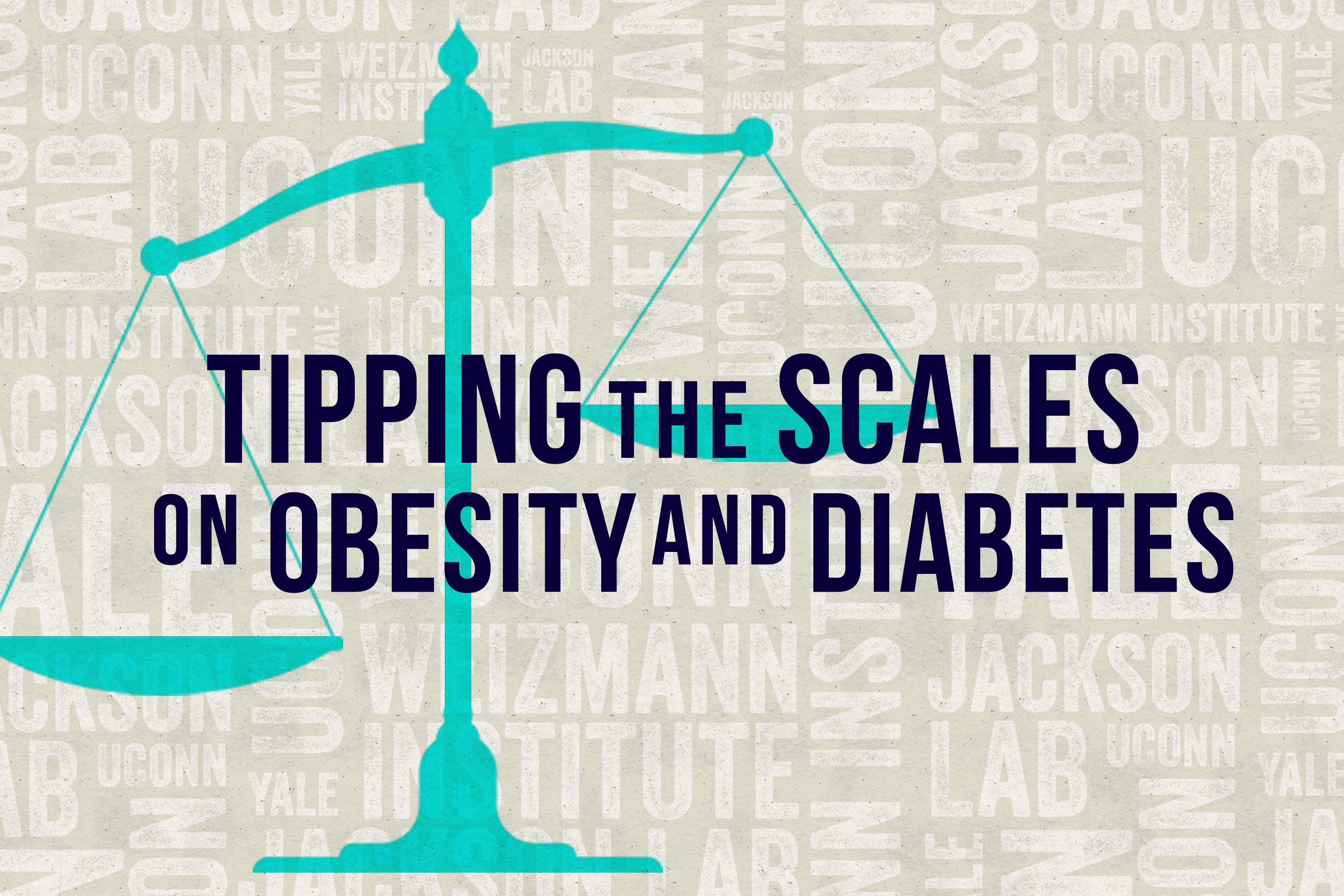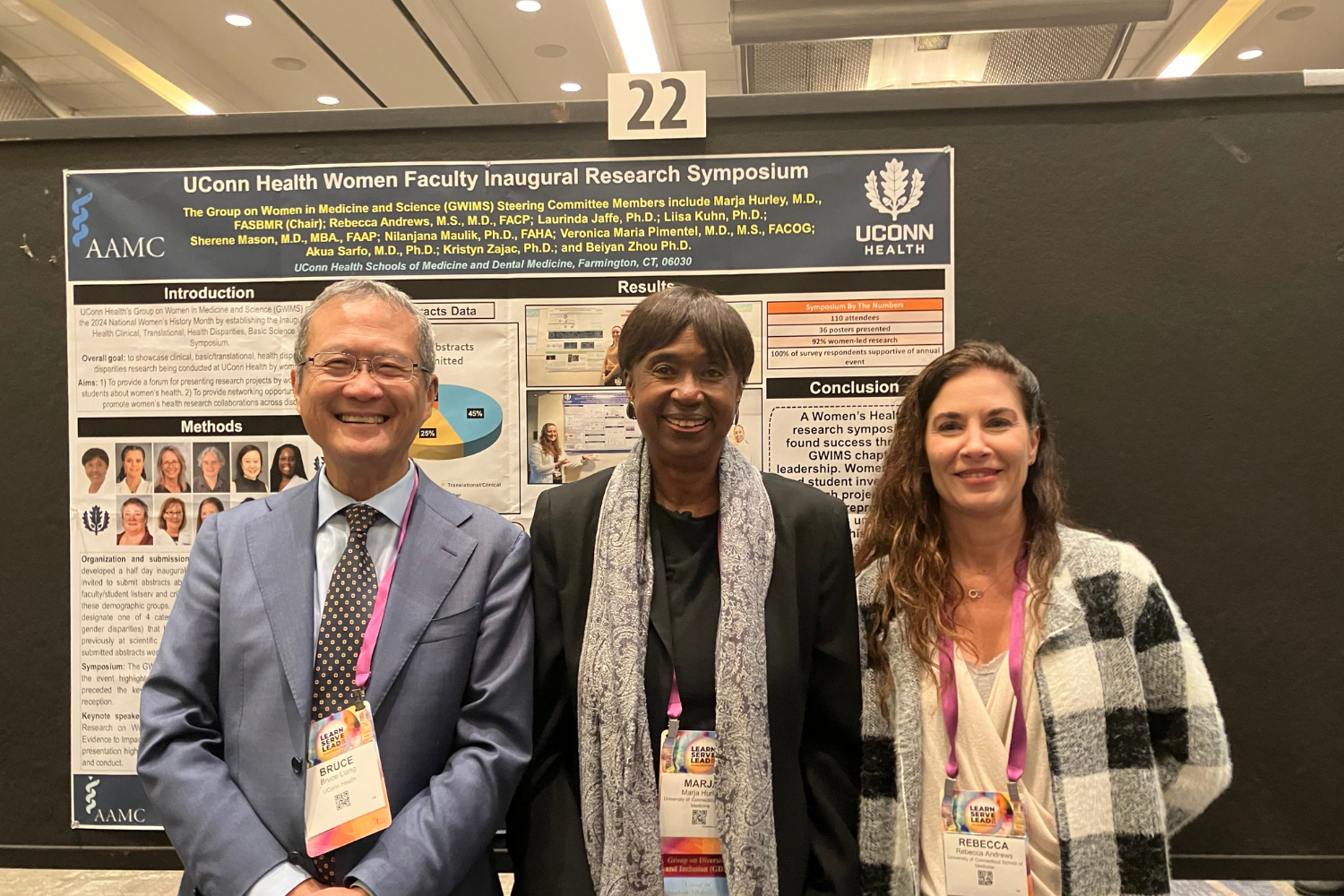Three Connecticut research institutions are partnering with a prestigious counterpart in Israel to fill a research void in metabolic diseases, such as obesity and diabetes, which affect billions of people worldwide.
The goal of the Metabolic Research Alliance is to unite the expertise at University of Connecticut, Yale University, The Jackson Laboratory (JAX), and the Weizmann Institute of Science on research projects that swiftly move investigations into clinical application and commercialization.
The World Health Organization estimates that at least a half billion people worldwide suffer from obesity; more than 350 million individuals are diagnosed with diabetes.
“These two diseases are growing exponentially, and with catastrophic individual and societal effects and costs,” said Dr. Milton Wallack, founder of the Connecticut Stem Cell Coalition and organizer of the alliance. “Unfortunately, relatively few new therapeutic options are being developed, despite the crisis.”
The Metabolic Research Alliance will entail a novel approach to coordinating existing and new expertise in the areas of immunology, cell biology, microbiota, and the rapidly evolving field of genomics. While investigations will initially focus on obesity and diabetes, the research projects will eventually pursue solutions to additional metabolic diseases.
These two diseases are growing exponentially, and with catastrophic individual and societal effects and costs. — Milton Wallack
The formation of the alliance comes at an ideal time. The institutions have already begun to collaborate on research, including a study by Yale and UConn that found gut bacteria differ between obese and lean youth and another out of the Weizmann Institute about a Personalized Nutrition Project. And, the state of Connecticut has been called a “hub for new bioscience companies,” based on the infrastructure available through the alliance institutions to foster new research prospects.
“That hub is growing rapidly,” said Jeffrey Seemann, UConn’s vice president for research. “Our world-class Technology Incubation Program (TIP) provides lab space and business services for emerging firms, and is already supporting companies with links to Yale, UConn, and JAX that are well aligned with this initiative.”
Researchers within the alliance began making connections on projects at a scientific workshop held at UConn Health in Farmington in April and co-sponsored by The Jackson Laboratory and the Cohen Family UConn-Israel Start-up Fund managed by UConn Global Affairs.
Among the alliance research projects:
Project
Anthony Vella, Boehringer Ingelheim Chair in Immunology at UConn Health; associate dean of Research Mentoring and Career Development
Atan Gross, Department of Biological Regulation, Marketa & Frederick Alexander Professorial Chair, Weizmann Institute of Science
The collaborative teams of Gross and Vella will investigate the role of a key outer mitochondrial membrane protein called mitochondrial carrier, regarded as a gatekeeper for oxidative phosphorylation. Its absence is associated with increased metabolism or energy consumption. This data will be clinically useful in the development of new ways to control obesity, with the goal of identifying novel protein interactions for possible pharmaceutical targeting.
Project
Alon Chen, head, Department of Neurobiology, Weizmann Institute of Science
Yael Kuperman, head of the Metabolic Core Unit in the Department of Veterinary Resources and the Sara and Rolando Uziel Research Associate Chair, Weizmann Institute of Science
Gerald I. Shulman, professor of medicine and professor of cellular and molecular physiology; investigator, Howard Hughes Medical Institute; co-director, Yale Diabetes Research Center; director, Yale Mouse Metabolic Phenotyping Center
Chen, Kuperman, and Shulman will exchange expertise and knowledge available at the Yale and Weizmann Institute Metabolic Phenotyping Centers, and will resume past collaborations on the involvement of stress-signaling molecules, in both brain and muscle, in regulating metabolic functions and stress-induced metabolic diseases such as obesity, type-2 diabetes, and eating disorders.
Project
George Weinstock, professor, Evnin Family Chair and Director of Microbial Genomics at The Jackson Laboratory
Eran Elinav, professor of immunology, Rina Gudinksi Career Development Chair, Weizmann Institute of Science
Kevan Herold, professor of immunobiology and internal medicine, Yale University
Weinstock, Elinav, and Herold will collaborate on a study of immunological and microbial contributions to obesity and the metabolic syndrome.
University of Connecticut
The University of Connecticut is a national leader among public research universities, where more than 30,000 students are enrolled in over 100 undergraduate majors and 86 graduate fields of study. In recent years, the University has been busy racking up high-profile nods from organizations like U.S. News & World Report for the quality of its education and initiatives. The rise of the University over the last two decades has been astounding, as UConn achieves new heights of academic success – doubling research grants, attracting top students, and offering programs that continue to grow in prestige.
The Weizmann Institute of Science
The Weizmann Institute of Science in Rehovot, Israel, is one of the world’s top-ranking multidisciplinary research institutions. Noted for its wide-ranging exploration of the natural and exact sciences, the Institute is home to 3,800 scientists, students, technicians, and supporting staff. Institute research efforts include searching for new ways of fighting disease and hunger, examining leading questions in mathematics and computer science, probing the physics of matter and the universe, creating novel materials and developing new strategies for protecting the environment.
The Jackson Laboratory
The Jackson Laboratory is an independent, nonprofit biomedical research institution based in Bar Harbor, Maine, with a National Cancer Institute-designated Cancer Center, a facility in Sacramento, Calif., and a genomic medicine institute in Farmington, Conn. It employs 1,800 staff, and its mission is to discover precise genomic solutions for disease and empower the global biomedical community in the shared quest to improve human health.



